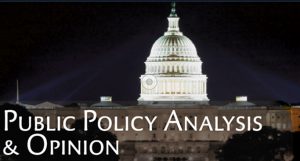 “Crash for cash” schemes increase in frequency
“Crash for cash” schemes increase in frequency
Practitioners of the business of insurance revile
few people with more vigor than the fraudsters who
stage automobile collisions in pursuit of ill-gained profit.
By Kevin P. Hennosy
On a regular basis, this column recounts instances when the insurance sector flexes its considerable political muscle to avoid attention from the Federal Government.
This is not one of those columns.
Beginning in May of 2025, select members of Congress urged the U.S. Department of Justice (DOJ) to inject federal power into the insurance sector, and this time the insurance sector seems quite pleased with the coming of the “Federals.”
What strange pulsation in the known universe pushed these two storied opponents in American business and law into an unlikely alliance? The answer: staged accidents.
A staged accident, or “crash for cash,” is when criminals maneuver unsuspecting motorists into crashes to make fraudulent insurance claims. The philosopher Sophocles said he would “rather fail with honor than succeed by fraud.” Not everyone agrees with Greek philosophy.
Practitioners of the business of insurance revile few people with more vigor than the fraudsters who stage automobile collisions in pursuit of ill-gained profit. The insurance sector’s response to this kind of swindle is understandably visceral, an “unleash the hounds” kind of response.
According to an issue briefing published by the insurance and reinsurance giant AXA, fraudsters bilk the insurance sector of “approximately $20 billion annually. In California alone, staged accidents account for $1.5 billion to $2 billion each year in insurance payouts,” according to AXA.
The AXA brief also estimates that a “staggering 25% of all accident claims are considered to be fraudulent to some degree.” Such estimates fuel insurers’ efforts to uncover and punish claims fraud that can cause angst for policyholders seeking payment for a claim.
Insurance is a business based on trust in future actions, and the prevalence of fraud can shape the expectations of insurers and policyholders. As the master of hardboiled detective fiction Dashiell Hammett wrote: “If the Old Man said something was so, then it probably was, because he was one of these cautious babies who’ll look out the window at a cloudburst and say, ‘It seems to be raining,’ on the off-chance that somebody’s pouring water off the roof.”
NICB
Most readers will know that the National Insurance Crime Bureau (NICB) monitors claims data for the insurance industry and works with local, state and federal law enforcement. NICB data show a staggering 38% jump for staged accidents involving commercial vehicles for 2023-2024. The problem is growing.
This is not to say that federal law does not provide useful and significant enforcement tools to combat staged accidents. Federal criminal statutes prohibiting mail, wire, radio, and television fraud are available to prosecutors.
Which brings us to the Racketeer Influenced and Corrupt Organizations (RICO) Act, which offers the opportunity to bring to bear civil and criminal sanctions against staged accident rings. RICO offers prosecutors both crippling treble damage assessments and decapitating incarceration terms in federal prison for ringleaders.
For decades, it has been the practice of the NICB to share select lists with the Federal Bureau of Investigation (FBI). The NICB analyzes claims reports and identifies names of individuals and groups of individuals associated with claims that appear suspicious in nature and related to staged automobile accidents.
The FBI Directorate of Intelligence’s Financial Crime Intelligence Unit (FCIU) uses both list data and access to the NICB Claims Search Database to find and analyze information about potential and ongoing staged accident cases and schemes as well as other automobile insurance fraud schemes. If supported by evidence, the FBI can and does secure indictments under its ample authority over mail fraud and wire fraud crime.
As with any area of criminal behavior, the grifters who organize staged accidents and the law enforcement personnel who combat that activity have coined descriptive terms for the dirty deeds. For example, the NICB cites the following names for the fraudsters’ tactics: The Left Turn Drive Down, The Right Turn Drive Down, The Curb Drive Down, and The Swoop-and-Squat, which offers city street and freeway variations. For descriptions of each tactic, visit the NICB website.
Congressional letter
On May 9, 2025, seven members of the U.S. House of Representatives sent a letter to U.S. Attorney General Pam Bondi asking for an increased level of commitment from federal law enforcement to combat staged accidents.

The letter does not mention the ongoing FBI efforts to fight staged accidents and veers off into jousting with ethnic boogiemen before getting to the point, which follows:
To combat this growing crisis, we urge the Administration to form a specialized task force dedicated to investigating and prosecuting staged accident fraud. Supervised by you and your team, a collection of law enforcement agencies (Department of Justice, Department of Homeland Security, and local police departments), along with the Department of Transportation, businesses, and the public can help identify and dismantle these criminal enterprises.
NAMIC
Neil Alldredge, president and CEO of the National Association of Mutual Insurance Companies (NAMIC), wrote to Attorney General Bondi to “echo” the congressional letter.
“Staged vehicle accidents are rising at an alarming rate, increasing risks and costs for all honest road users and our members who provide the financial security that helps rebuild lives and businesses in the wake of a crash,” reported Alldredge.
The NAMIC letter stayed focused on the facts:
These criminal enterprises often start with recruiters who seek out fake “victims”—persons who deliberately crash into other vehicles and then file fraudulent claims against an innocent driver’s insurer. Recruiters also seek out unscrupulous medical providers and lawyers to service those “victims,” whether they need it or not. These problems are especially prevalent where commercial vehicles transporting goods or passengers are concerned—those vehicles generally carry higher insurance coverages and thus make more attractive targets for these schemes.
Alldredge succinctly summed up the association’s position: “We recommend that in addition to federal, state, and local law enforcement agencies, the task force includes insurance industry representation as a key stakeholder with relevant expertise to share about our claims, investigation and fraud detection strategies.”
House bill
U.S. Representative Mike Collins (R-Ga.) was one of the signatories to the May 9 letter to Attorney General Bondi and is lead sponsor of the Staged Accident Fraud Prevention Act of 2025. The NAMIC letter carried an endorsement of Rep. Collins’ bill.
The bill would lift from state authority to federal authority criminal acts relating to staging vehicle accidents involving commercial vehicles. Representative Collins has three co-sponsors for the legislation: Rep. Brandon Gill, (R-Tex.), Rep. Daniel Webster, (R-Fla.), and Rep. Scott Franklin, (R-Fla.).
The proposed legislation received the immediate endorsement of the American Trucking Associations [sic] (ATA). The statement endorsing the legislation included the ATA’s position, “Specifically, the bill establishes straightforward criminal penalties not just for the drivers who stage these collisions—but also for the attorneys, physicians, and other co-conspirators who knowingly participate in the fraud to extort victimized motor carriers.”
Since its introduction in April, U.S. House leadership sent the bill to the Judiciary Committee for consideration. As of early September, that committee has not conducted a hearing on the bill.
It is yet to be decided by knowledgeable congressional observers whether this legislation is a serious attempt to achieve passage, or whether it is something else. For example, former Congressional Doorkeeper “Fish Bait” Miller referred to it as a “Fetcher Bill”—one introduced solely to attract campaign contributions from special interests. As the congressional session advances, we shall see.
By way of background about the lead sponsor, Rep. Collins, the landing page of his website notes that he “and his wife Leigh Ann started a trucking company in the early 1990s that has grown to employ more than 100 Georgians and hauls freight all over America.”
So, there is that.
Oh well, it was the crime writer James Ellroy who receives credit for observing: “Anybody who doesn’t know that politics is crime has got a few screws loose.”
The author
Kevin P. Hennosy is an insurance writer who specializes in the history and politics of insurance regulation. He began his insurance career in the regulatory compliance office of Nationwide and then served as public affairs manager for the National Association of Insurance Commissioners (NAIC). Since leaving the NAIC staff, he has written extensively on insurance regulation and testified before the NAIC as a consumer advocate.




